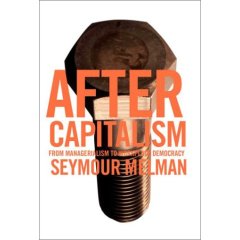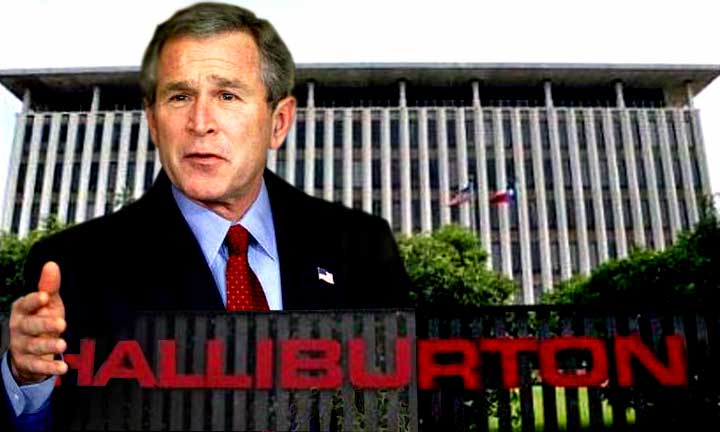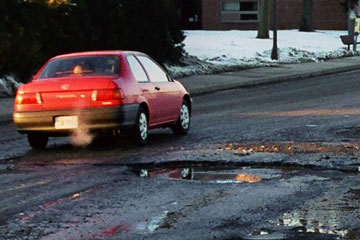


|
|
| Feedback |
|---|
Real Resources Review: A little makes a lot?I sent John Busby's 7th August article to a friend who understands more about nuclear power than I do. His reaction was that 'Mr Busby is not conversant with the concept of pebble bed reactors'. I would like to ask Mr Busby how he views that technology and whether he would care to tackle it in an article for the uninitiated like myself? Kind regards, Paddy Imhof
The problem is that mining of uranium is running down, whatever form of reactor is envisaged. See Die Welt which reports the imminent closure of some of the French reactors due to fuel shortages. The thorium alternative and fast breeders are dependent on vast development programmes which with the rapid and progressive failure of the nuclear industry will never be funded. As far as the pebble bed reactor is concerned it depends on the integrity of the pebbles and as these contain graphite this is likely to lead to the demise of this technology. The seven UK AGR's are likely to close prematurely as the graphite moderator blocks are disintegrating due to the irradiation which causes structural breakdown. Also there is an overheating due to the Wigner Energy effect which leaves a residual heat in the graphite. The gas-cooled fast reactor is also an unlikely candidate for funding for this reason as it relies on graphite moderation. The nuclear lobby in desperation is arguing that uranium can be extracted from the earth's crust and seawater and looks to fast breeders to generate ever more plutonium. All of which is fantasy. We do not have to wait too long for some of the
lights to go out in France, which will hopefully lead to a reality
check! |

| Why a democratic economy would be a more efficient economy, Part 2 |  |
 |
| By Jon Rynn | |
| Jan/15/2007 | |
|
Would it be possible to expand the model of Mondragon- that system of co-operatives discussed in Part I? MCC itself officially claims that it would be “pretentious” to advise the rest of the world on how to organize themselves. Since we are faced with the problem of surviving in a world without fossil fuels, we need to be pretentious. After capitalism
The “scaling-up” problems of Mondragon point to other possible considerations when designing an efficient economy. First, it has been found that a cooperative of more than about 500 people leads to a certain breakdown in community; this is about the size of factory or office building. If major corporations, or even multinational corporations were restructured on the Mondragon model (and in fact, Mondragon is now multinational), then each factory or office would essentially have to become its own co-op, with the Governing Council coordinating the various co-ops. On the other hand, should Mondragon or other worker co-op networks really be multinational, or even stretch across urban regions? Mondragon has been heavily criticized for expanding internationally in what is basically a typical corporate way. Second, how hard would it be to train non-Basque peoples to thrive in a democratic economy? Does it really take that large of a cultural shift? The Basque people may have been living together for tens of thousands of years; they may be able to reasonably claim to have the greatest communal solidarity of any people. Perhaps extensive training in participative organizations is a critical necessity. Democracy means government doesn’t need to be on our backsThird, it is quite possible that an economy composed of myriad Mondragon-type complexes would actually require less government regulation of the economy[3] than is currently needed, leading to lower cost for government. Hierarchical, top-down, absentee shareholder-owned firms have a stock explanation for their behavior, no matter how anti-social: “We have to maximize the profits of the stockholders”. In practice, these firms actually behave according to the dictate: “We must maximize the power of our CEO”. It is one of the great mysteries of current liberal thinking in the United States that the selfish nature of corporate behavior should not elicit the following response:
At this point, the good conservative economist will pop up and proclaim that the interaction of competitive firms in a free market leads to the best of all possible worlds, but the market’s headlong rush into deindustrialization, economic collapse, global warming, oil depletion, and so on should make it clear that the market is anything but perfect. A Mondragon-type complex, being controlled by its employees, will have a tendency to minimize unsafe working conditions, output of pollution, and outsourcing. Being composed of members of the community, a democratic firm will have more than maximization of profits/power as goals of their activity. This would be another reason to keep each complex local, contrary to what the Mondragon system is actually currently doing. The Bank of EcolandFourth, an entire economy made up of worker co-op complexes would mean that there would be no need for a stock exchange, since shares in the co-ops cannot be traded. Much of the finance sector would not be needed; there would be no more huge mergers and acquisitions fees, nor fees for initial public offerings, saving billions for the economy for productive work.
The first two ways to eliminate the waste of human resources is
to cutback unnecessary sectors such as the military and to make
firms democratic. The third move toward an efficient economy would
be to construct a democratic financial system, anchoring the
democratic economy. What do we need them for?”[4]
[1] These would be embedded in a continental economy, see Extreme Makeover, Global Edition, Episode One. [2] As far as I can tell, the Mondragon Bank does not lend money or invest money outside the MCC. In his article “Extending disarmament through economic democracy”, published in the journal Peace Review in 2000, Jonathan M. Feldman considers how workplace democracy could help cut down the size of that other major source of waste, the military. [3] I would like to thank Brian D’Agostino for pointing this out to me [4] "After Capitalism", p.447. Jon Rynn uses his blog at http://www.globalmakeover.com/
to comment on articles concerning global ecological and economic
problems and solutions. Please feel free to email him with
your comments at
This email address is being protected from spam bots, you need
Javascript enabled to view it
",
|
 |
| Register Free to receive updates of latest stories |
|---|
| Polls |
|---|



 Finally,
a democratic economy would help to solve the massive problems
confronting the U.S. and the world. For instance, in order to make
mass transit based on rail practical, much of the physical layout of
the major metropolitan areas will need to be reconfigured, and in
particular, housing will need to become more dense than your typical
suburban sprawl, and built closer to transportation stops. In the
Mondragon system, the Bank provides financing for housing
construction, and this function could be well-served by a
continent-wide network of co-op complexes. In addition, the co-op
banks could provide financing to move food production close to the
city, and even within the city.
Finally,
a democratic economy would help to solve the massive problems
confronting the U.S. and the world. For instance, in order to make
mass transit based on rail practical, much of the physical layout of
the major metropolitan areas will need to be reconfigured, and in
particular, housing will need to become more dense than your typical
suburban sprawl, and built closer to transportation stops. In the
Mondragon system, the Bank provides financing for housing
construction, and this function could be well-served by a
continent-wide network of co-op complexes. In addition, the co-op
banks could provide financing to move food production close to the
city, and even within the city.  In the
normal functioning of an industrial economy, the surplus generated
from the manufacturing sector – essentially, the profits – are
either used by the firms to expand, or are deposited in large banks,
who then do whatever it takes to maximize their own profits,
whatever the effect on the national economy. If the economy is
organized as sets of co-op complexes, then the banks in the middle
of these complexes would receive these surpluses, as well as the
deposits of their consumers, and the finance capital would be
available to improve the asset base of the urban region – asset base
being used in a broad sense to include infrastructure, housing, and
even in the case of Mondragon, education.
In the
normal functioning of an industrial economy, the surplus generated
from the manufacturing sector – essentially, the profits – are
either used by the firms to expand, or are deposited in large banks,
who then do whatever it takes to maximize their own profits,
whatever the effect on the national economy. If the economy is
organized as sets of co-op complexes, then the banks in the middle
of these complexes would receive these surpluses, as well as the
deposits of their consumers, and the finance capital would be
available to improve the asset base of the urban region – asset base
being used in a broad sense to include infrastructure, housing, and
even in the case of Mondragon, education.